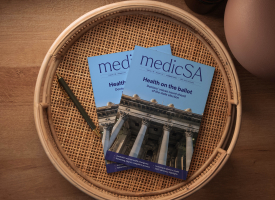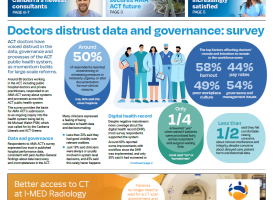The AI revolution must not leave anyone behind
Artificial intelligence (AI) can be a “game changer” for Australia’s healthcare sector, but proper regulation is needed to ensure it doesn’t worsen health inequities across the system.

In a keynote address to the AI in Health Readiness Forum today, AMA President Professor Steve Robson will acknowledge the vast potential of AI to help improve diagnostic and decision support tools and free up more time for face-to-face interactions with patients by simplifying the paperwork and administrative burdens on doctors.
“AI has the potential to deliver dazzling innovation in healthcare in Australia and globally. AI has the potential to be transformative — that game changer we talk about,” Professor Robson will tell the forum.
But he will warn AI could exacerbate the inequities in Australia’s healthcare system without proper regulation and will call for measures to ensure all Australians have equal access to future AI diagnostic technology and treatment options.
“Equity of access to diagnostic services that are AI powered must be accompanied by equity of access to adequate treatment for conditions diagnosed,” Professor Robson will say.
During his address, Professor Robson will also call for regulation that addresses issues relating to patient safety, privacy and professional autonomy.
“The question of AI ethics in medicine must be resolved before any widespread application — and any AI ethics frameworks must not be voluntary, but mandated to all those developing or implementing AI,” he will tell the forum.
“We argue that in the absence of regulation, compensation for patients who have been misdiagnosed or mistreated will be impossible to achieve.”
Professor Robson will reject claims regulation will stifle innovation, instead arguing good regulation gives clarity for creators, developers and businesses.
Professor Robson will also emphasise that AI won’t have the potential to undermine the role of doctors.
“I say this because when people are afraid, when they’re ill, when they’re worried about the future, they crave human connection,” he will say.
“I hope that AI is employed to do the tasks that eat into time I could be spending with patients and talking to them.”
The AMA’s first Position Statement on the use of AI in healthcare was released in August and outlines a set of ethical and regulatory principles based on safety and equity, which should be applied to the application of AI technologies in healthcare.



